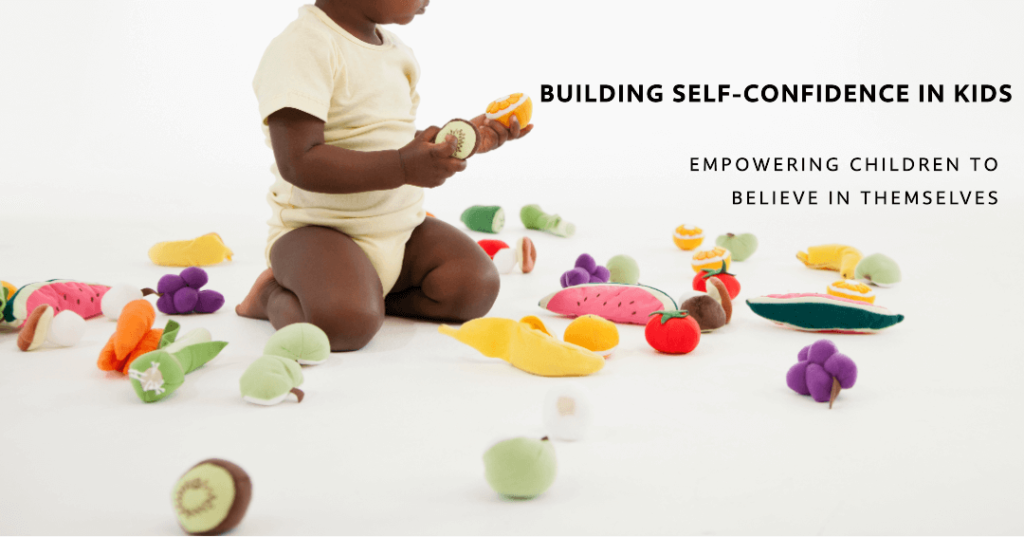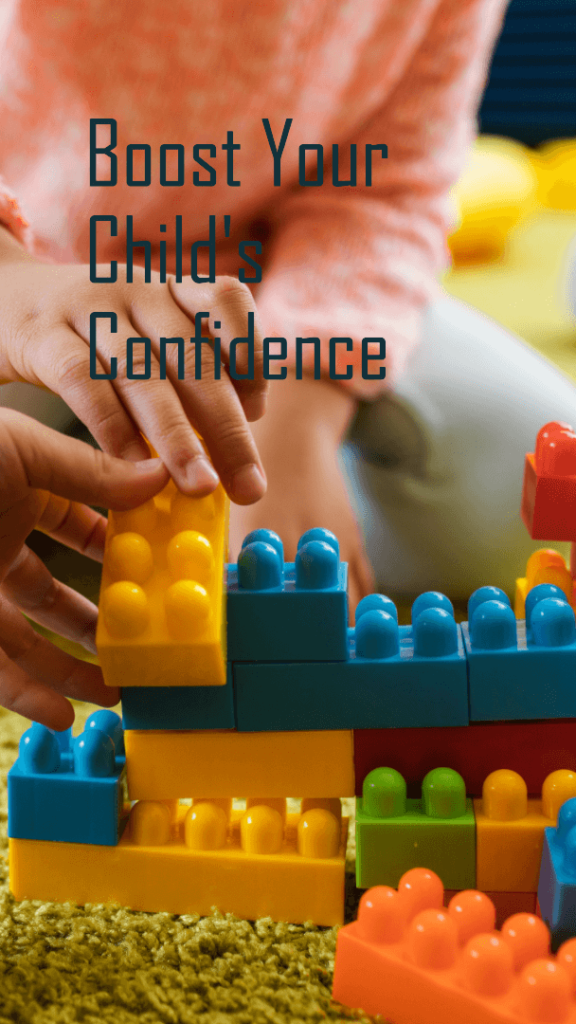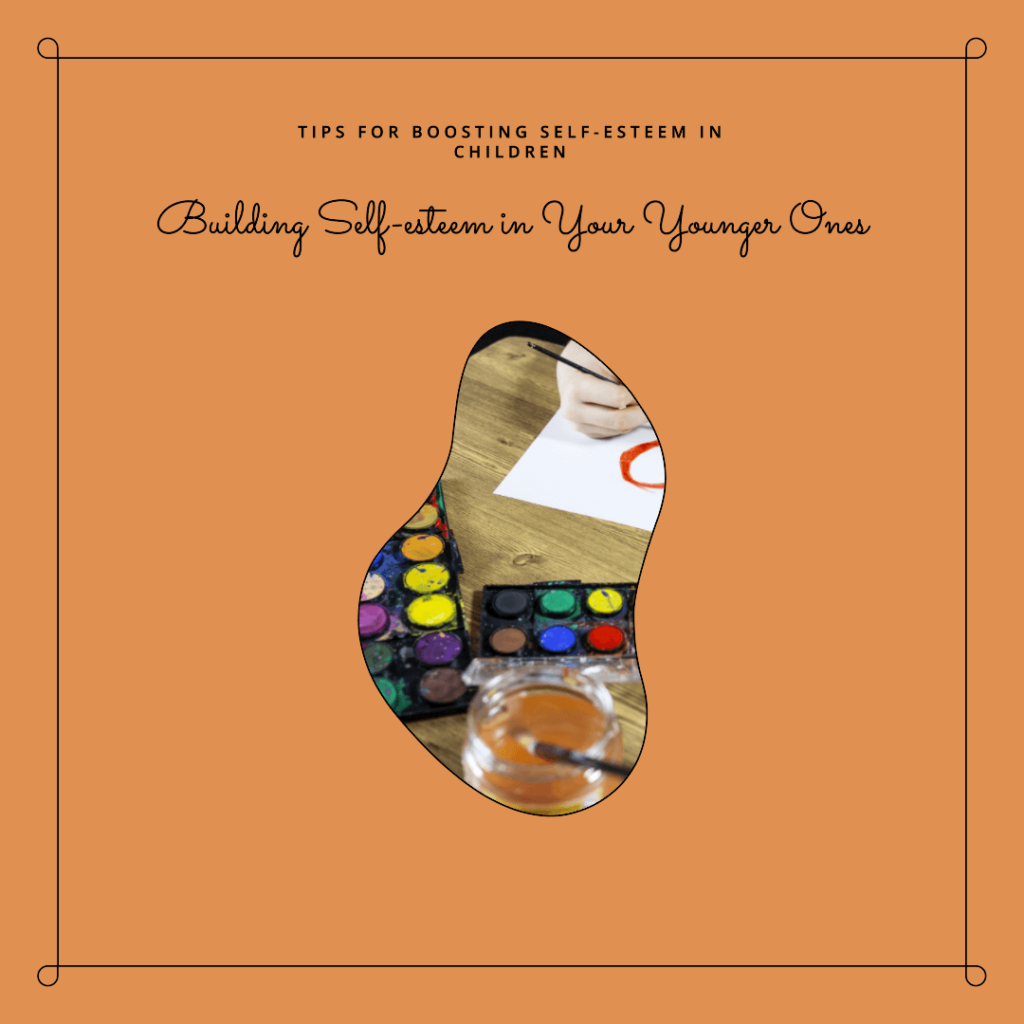A Parent’s Guide

Raising a confident child is one of the greatest gifts a parent can give. Self-confidence is like a sturdy foundation upon which children build their lives. It enables them to take on challenges, embrace new experiences, and navigate the complexities of life with resilience and optimism.
In this blog post, we’ll explore various aspects of self-confidence in children, offering practical tips and insights for parents to foster this essential quality in their youngsters.
How to Increase Self-Confidence in Kids
Every child is unique, and so is their journey towards self-confidence. As parents, one of your primary roles is to be their unwavering support system. Children thrive when they know that their parents believe in them.
Simple words of encouragement like “You’re doing great!” or “I’m proud of you!” can work wonders in bolstering their self-esteem. It’s not about constantly showering them with praise but rather providing a consistent and nurturing environment where they feel valued and capable.
Confidence is built upon a foundation of accomplishments and positive experiences. As parents, you can facilitate this by encouraging our children to explore their interests and passions.
Whether it’s sports, arts, or hobbies, these activities provide opportunities for them to discover their strengths and build their confidence through small achievements.
Teaching self-confidence is not about shielding our children from failure but helping them understand that setbacks are a part of life’s journey.
It’s essential to communicate that making mistakes is a natural and valuable part of the learning process. By sharing our own experiences of overcoming challenges, we demonstrate that self-confidence can be cultivated through resilience and determination.

5 Strategies for Improving Self-Confidence in Kids
Self-confidence is not an innate trait but a skill that can be developed. Encouraging our children to step out of their comfort zones and take on age-appropriate challenges can help them gradually build confidence. Whether it’s conquering a fear, mastering a new skill, or handling responsibility, these experiences contribute to their growing sense of self-assurance.

Nurturing Self-Esteem in Children
Self-esteem is closely intertwined with self-confidence. To nurture self-esteem, parents should help their children identify their strengths and weaknesses.
Encouraging open conversations about their feelings, achievements, and challenges fosters self-awareness and emotional growth.
Creative activities like art and crafts can also be powerful tools for self-expression and self-discovery.
Childhood Self-Esteem
Recognizing signs of low self-esteem in children is crucial. Immature self-consciousness, where a child feels inferior to others, or low resilience, leading to excessive distress in the face of criticism, are indicators that a child may be struggling with self-esteem. As parents, being attentive to these signs allows you to offer the support and guidance needed to boost their self-worth.
Childhood Development and Self-Confidence
Childhood is a time of tremendous growth and development. It’s essential to understand that self-confidence in children is not a static quality but an evolving one. Through practice, learning, and nurturing, children can gradually develop the self-assurance they need to navigate life’s challenges.
Positive Self-Image in Children
Building a positive self-image is a lifelong journey that begins in childhood. Parents play a pivotal role in this journey by creating an environment where children feel loved, accepted, and valued.
Offering praise for effort and achievements, no matter how small, helps children associate their actions with positive outcomes.
Instilling Self-Worth in Kids
Instilling self-worth in children is a continuous process. It involves fostering healthy relationships, both within the family and with peers and teachers.
Positive self-talk, independence, and resilience are all facets of self-worth that parents can cultivate through their guidance and example.

Conclusion
In the grand tapestry of parenting, nurturing self-confidence in our children is a vital thread. It’s a journey filled with challenges and triumphs, setbacks and successes. But through your unwavering support, encouragement, and belief in your children’s abilities, can provide them with the gift of self-confidence—the cornerstone upon which they will build a future filled with promise and possibility.
So, let’s embrace this journey, one step at a time, and watch our children flourish into confident, capable individuals ready to take on the world with resilience and self-assurance.

I want to extend a heartfelt thank you for taking the time to read this blog post. I hope it was informative, insightful, and most importantly, useful to you. Mental health is an important topic that affects us all, and I’m grateful for the opportunity to share my thoughts with you.
If you have any thoughts or comments, I encourage you to leave them in the comment box below. Your feedback is essential to me and helps me create content that is tailored to your needs.
If you found this post helpful, please subscribe to my newsletter for more resources and updates on mental health. You can also reach out to me via email if you have any questions or just want to chat. Remember, taking care of your mental health is important, and you are not alone.
Leave a Reply